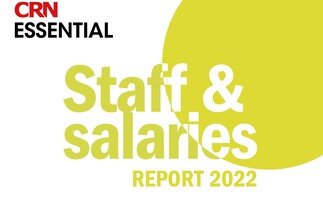Price rises in our space are inevitable
Rob Quickenden, CTO, Cisilion

Vendor CEOs have been vocal about the need to raise prices and have advised channel partners to do the same. Looking at both the products and services you offer, how critical is the situation for your business?
Price rises in our space are inevitable given the current economic state and inflation. This situation is of course not great, but as product and services business, I believe there is a huge opportunity to help our customers balance the books and use the price rises as an opportunity. There is an opportunity to "do more with less" by reviewing the long list of vendors and products they use and consolidating where they can. There will be better deals to use more "suites" of products from the same vendor than buy point products. Vendors will often "help fund", "support" or "sponsor" customers' technology partners to deploy and displace third-party products. Ultimately best of suite can prevail over point products in most cases. Capex, Opex and operational costs can all reduce.
As an example, we have a range of services to help customer adopt the technology they have invested in (reducing shadow IT) - which drives RoI and vFM, consolidates overlapping tech and optimises what they have, from cloud spend to enterprise agreements to maintenance agreements.
To what extent do you expect to absorb recent/ongoing cost increases around headcount and hardware/software prices, at least in the short term?
Headcount cost is the hardest. Employees need to pay their bills so there is pressure on them from families to earn more. We are investing more in grads and less experienced people that have the right attitude, commitment and passion to succeed. There can be no senior without juniors, so building for tomorrow is key in the war for talent. We of course have to pass on price rise to customers for hardware and software that we re-sell, but we are actively driving conversations to help - as per the example above - consolidation of multiple vendors, technology adoption and optimisation services.
To what extent do you expect to absorb recent/ongoing cost increases around headcount and hardware/software prices, at least in the short term?
Price fixing is something many customers want to have as this leads to certainty. Just like a fixed-rate mortgage, helping customers to control spend and avoid bill shock (especially for cloud services) is key. Global giants like Microsoft and Cisco for example (IMO) can afford to ride the wave a little before they apply currency variations to pricing. They should be focusing (like partners and MSPs are) in looking after and retaining customers rather than just increasing prices - customers will jump at the sign of something cheaper when budgets are tight - in the long run loyalty and partnership should continue to be what keeps partners and vendors trusted.
HPE's CEO recently described HPE as a ‘market leader' when it comes to price rises. Is it better to lead or follow?
We are not sheep and each business and customer is different. If you know your customer, know your business and know what it right, it doesn't have to be one size fits all. For a giant global firm, they are more likely to have to do in mass, but for smaller, more agile businesses, i think it's about trying to do what is right. Prices will rise in some areas - they have too, but if we continue to add more value - we can mitigate the impact.
When dealing with big increases in your overheads and the price of the products you carry, what's your top tip for protecting margins while - at the same time - keeping customers happy?
It's all about breadth and depth. If you sell one thing to a customer, there's not much you can do if prices rise or if you have cut your margins to keep the customer. It's all about value. Know the customer. If you can be more than a seller and a transactor, you'll build trust and find other ways to help your customers. Lot of customers don't get the value they should from their current suppliers - when we feel the squeeze we look elsewhere. Don't be the reason they look elsewhere and even better, be the reason people turn to your business. People buy from people - people they trust.











